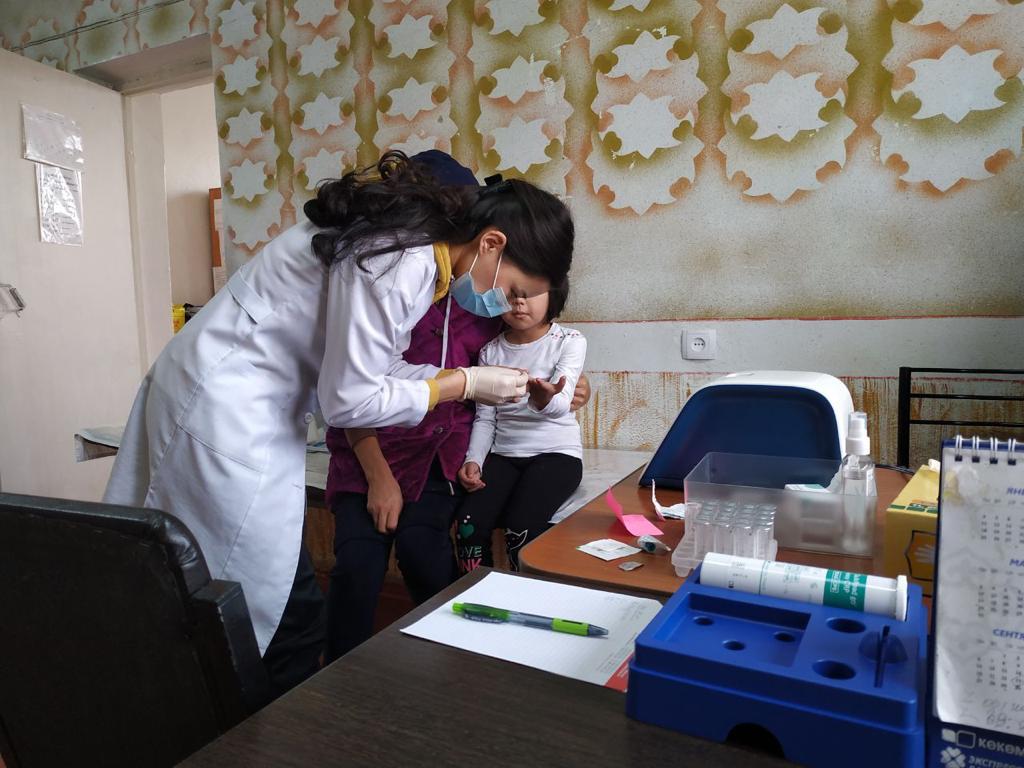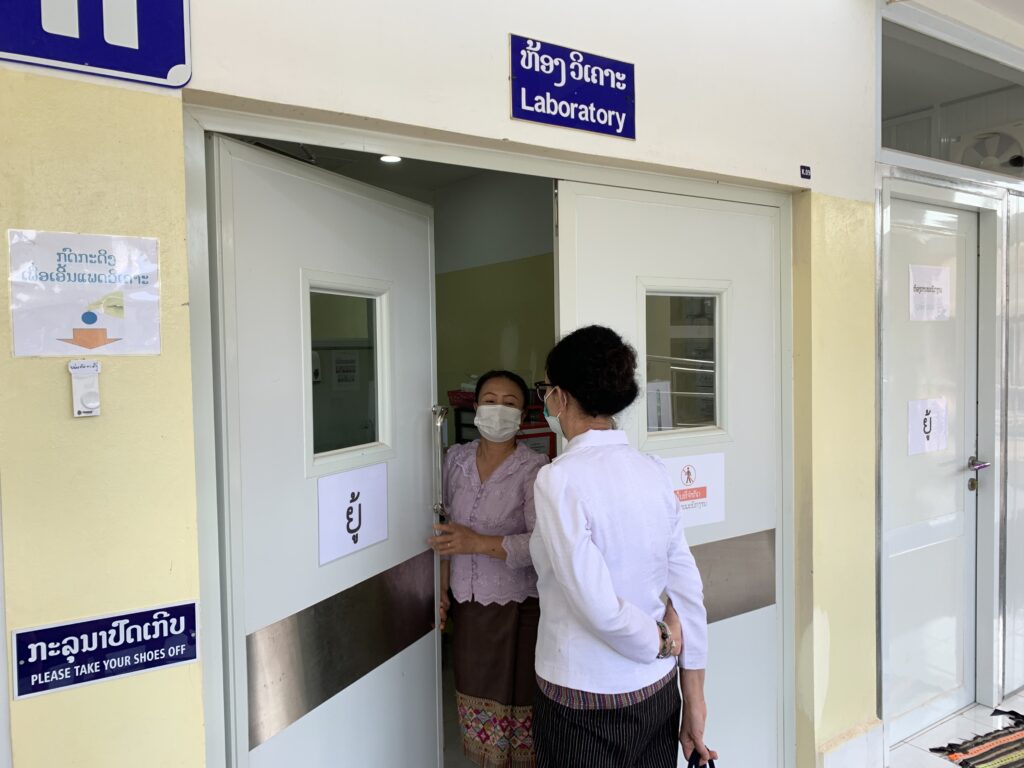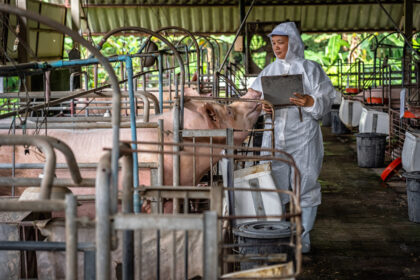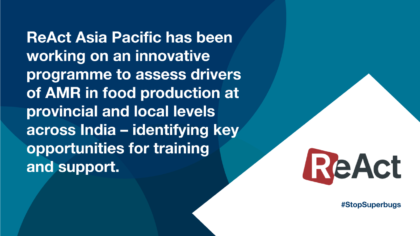Responsive Dialogue Guidelines
Responsive Dialogues is a community engagement approach developed by ICARS and UWC with funding from Wellcome to engage stakeholders, members of communities/public, and other people and organisations in a process that facilitates dialogue, learning, and the co-creation of solutions and policy recommendations that are grounded in local realities. These Guidelines are written for people interested in facilitating Responsive Dialogues to address the challenges associated with antimicrobial resistance (AMR). They aim to provide guidance on how to implement Responsive Dialogues, particularly in low- and middle-income countries (LMICs).
Table of contents
Glossary
Introduction
Introduction to Responsive Dialogues to address antimicrobial resistance
What is the Responsive Dialogues approach?
Opportunities for using Responsive Dialogues from an ICARS perspective
About these Guidelines
Section 1: Setting Up The Responsive Dialogues Project
Setting objectives and general considerations for project set-up
Setting up the core implementation team
Planning and managing the project
Developing a Monitoring and Evaluation Framework
Understanding cross-cutting themes
Section 2: Doing The Ground Work
Module 1: Mapping the AMR Ecosystem
Why map the AMR ecosystem?
How to map the AMR ecosystem?
How to organise the information?
How to monitor AMR ecosystem mapping?
Module 2: Engaging Stakeholders
Which stakeholders to engage?
What roles do stakeholders play?
How to engage and build relationships with stakeholders?
How to manage stakeholder challenges?
How to monitor stakeholder engagement?
Module 3: Engaging the Community
Who is ‘the community’?
How to identify communities for Responsive Dialogues?
How to inform and ask for consent to participate?
How to monitor community engagement?
Section 3: Setting Up Conversation Events
Module 4: Planning Conversation Events
What are Conversation Events?
How to develop agendas and session plans?
How to adapt and contextualise agendas and plans?
Who facilitates the Conversation Events?
How to train, brief, and support facilitators?
How to monitor for continuous improvement?
Module 5: Preparing for Conversation Events
What logistics must be organised?
How to prepare materials for Conversation Events?
How to monitor preparation?
Section 4: Running Conversation Events
Module 6: Facilitating Conversation Events and Addressing Challenges
How to prepare for participatory facilitation?
What facilitation challenges might you encounter?
How to manage and encourage participation?
How to shift power imbalances?
How to manage gender issues?
How to manage timing and pacing?
Module 7: Facilitating ‘Stages’ of Conversation Events
Stage 1: Facilitating input and evidence on AMR and One Health
Stage 2: Facilitating the exploration of lived experiences of AMR
Stage 3: Facilitating the process of ideation
Stage 4: Facilitating the process of co-creation and prototyping
How to ensure continuous improvement?
How to monitor facilitation?
Module 8: Documenting and Analysing Conversation Events
Why document and analyse Conversation Events?
How to collate, organise, and store information?
How to analyse information?
Section 5: Managing Impact
Module 9: Evaluating Evidence and Options for Impact
What is involved in evaluating the evidence?
How to compile a structured report?
How to share evidence and options for impact?
Module 10: Piloting Co-Created Solutions
What are the benefits of piloting a co-created solution?
Who will carry out the pilot?
How to plan the piloting?
How to collect and analyse data?
How to share the findings of the pilot?
How to advocate for resources for piloting and beyond?
Module 11: Disseminating Evidence to a Wider Audience
Why, who, and when to share evidence?
How and what evidence to share?
How to identify resources required to share evidence?
Module 12: Translating Evidence into Policy Recommendations
What is ‘evidence’ in the context of Responsive Dialogues?
What evidence is presented to policy-makers?
When to feed evidence into policy-making processes?
How to engage key stakeholders in taking recommendations forward?
How to communicate policy recommendations?
Section 6: Tools And Resources
Checklist of Activities and Outputs in Responsive Dialogues
Responsive Dialogues Scoping Statement
Checklist of Core Implementation Team – Roles and Skills Required in Responsive Dialogues
Note-taking System
Budgeting Tool
Monitoring and Evaluation Framework for Responsive Dialogues
Evaluation Criteria/Indicators – by Phase
M&E Data Collection Methods
How to find AMR Policies, Frameworks, and Action Plans
Organising and Running a Stakeholder Workshop
Suggested Steps to Design Conversation Events Sets
Suggested steps for design process
Extract from Agenda for Conversation Events
Agenda for Conversation Events
Session Plan for an Introductory Session
Session Plan
Logistics Checklist
Monitoring Form for materials used in Conversation Events
Examples of Participatory Activities for Conversation Events
Questions to use to Monitor Facilitation
Suggested Structure for the Report
Organising and Running a Stakeholder Feedback Workshop
Pilot Plan
The Analysis Phase
Policy Recommendations
Evaluation Criteria/Indicators – by policy issues
Further Reading
Funded by 
Details
Resource type: Guidelines
Date: 29. April 2024
Author: ICARS, UWC
Share
Share this project on socials
Related resources

Mitigating antimicrobial resistance (AMR) using implementation research: a development funder’s approach
Mark P Khurana, Sabiha Essack, Ghada Zoubiane, Nandini Sreenivasan, Gloria Cristina Cordoba, Erica Westwood, Anders Dalsgaard, Robinson H Mdegela, Mirfin Mpundu, Rodrigo Scotini, Augustine B Matondo, Alexanda Mzula, Nina Chanishvili, Dimitri Gogebashvili, Maia Beruashvili, Marika Tsereteli, Talant Sooronbaev, Jesper Kjærgaard, Joakim Bloch, Elvira Isaeva, Geoffrey Mainda, Geoffrey Muuka, Ntombi B Mudenda, Fusya Y Goma, Duc-Huy Chu, Duncan Chanda, Uchizi Chirwa, Kaunda Yamba, Kenneth Kapolowe, Sombo Fwoloshi, Lawrence Mwenge, Robert Skov

Mitigating the spread of antimicrobials and resistant microbes through treatment of manure
ICARS
Related projects

Facilitating appropriate antibiotic use in respiratory tract infections in children in Kyrgyzstan




